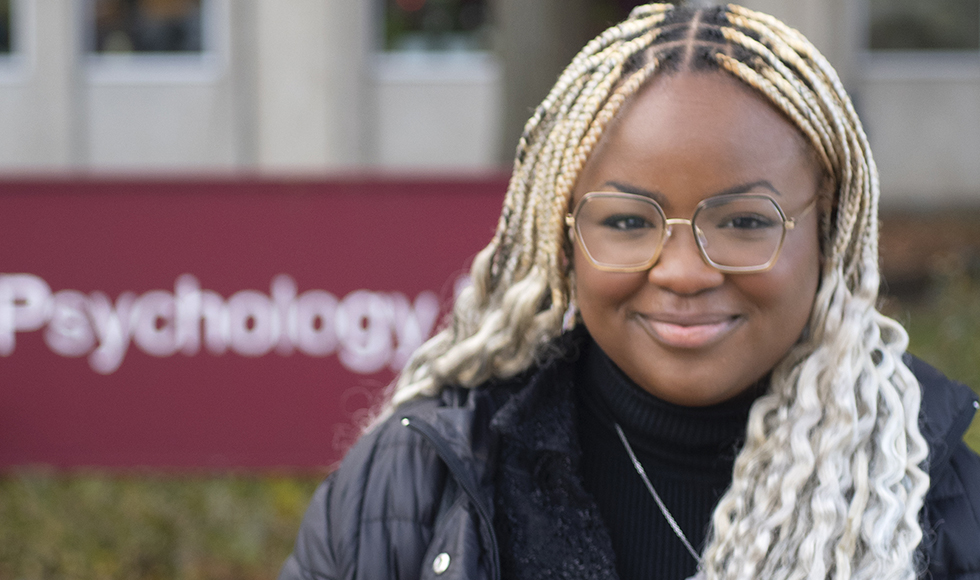Psychology prof and student work to fill in the blanks on mental health across cultures

Many communities and groups are underrepresented in mental health research. Student Danielle Amos and psychology Professor Nicholas Bock are working to add cross-cultural research to a course on mental illness.
Are substance use rates disproportionately high among gay youth?
Are anxiety disorder rates higher in Indigenous populations?
Why don’t people in Nigeria talk as openly about their mental health as people in Canada do?
Students often ask these questions and more in Associate Professor Nicholas Bock’s PSYCH 2AP3: Abnormal Psychology class, which surveys the prevalence, causes and treatment of mental illness.
And quite often, Bock’s answer is, “Well … we don’t know for sure,” because of large gaps in the research.
It’s a frustrating response for students from underrepresented groups or other countries, who are looking for answers on what mental health might look like for them.
Enter Danielle Amos, a fifth-year B.A.Sc. Human Behaviour undergraduate student with a minor in Philosophy. Amos is working to fill in some of the blanks on cross-cultural research in mental illness.
“As a Black student in the field of psychology, I felt there was a lack of representation for people like me and this is an opportunity to make this course more inclusive,” Amos says.
She has been seeking out research documenting mental illness in underrepresented populations for inclusion in PSYCH 2AP3 Winter term course.
While a lot of articles don’t cover a breadth of backgrounds, Amos has had some luck finding articles that cover “one or two”. She hopes to expand the work so it resonates more with students by having people of colour in the field come in to speak of their points of view.
Amos’ work in adding cross-cultural material to the class lectures on major mental disorders is invaluable, says Bock, who recruited her through the Student Partners Program at the MacPherson Institute for Leadership, Innovation and Excellence in Teaching.
The program offers students the opportunity to partner with faculty, instructors and staff on projects that enhance teaching and learning at McMaster.
“Danielle’s work encourages students taking the course to realize that mental health research needs to be more representative, and to challenge themselves to contribute to that body of research as they move forward in their careers,” Bock says.

